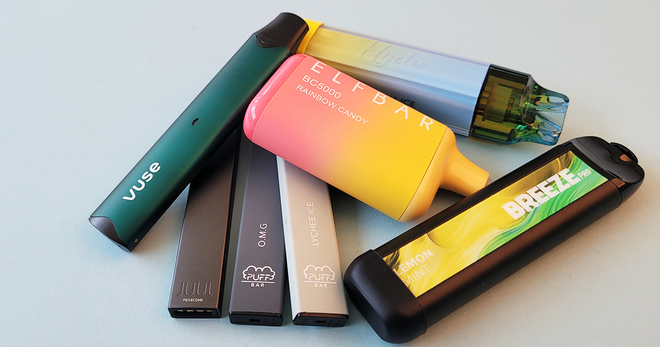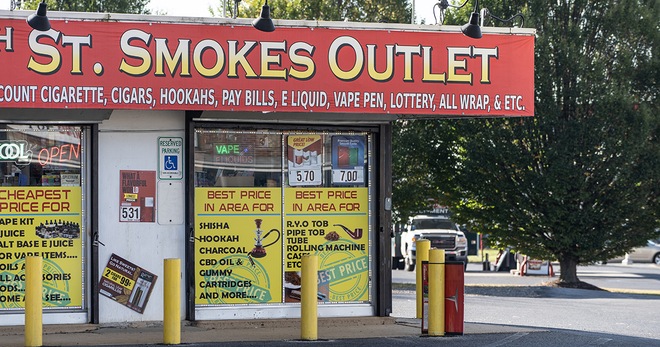4 ways the tobacco industry is attempting to rebrand itself
As tobacco companies roll out e-cigarettes and other non-combustible products, they are trying to transform their image with claims that they can be part of the “public health solution” to end smoking. The tobacco industry is making these claims while at the same time putting a new generation at risk of nicotine addiction – one in five high school students used e-cigarettes in 2020 – and continuing to sell cigarettes, which remain the country’s leading cause of preventable death.
Truth Initiative hosted a virtual discussion June 10 with leading experts – “Not Buying It: The Tobacco Industry’s Rebrand” – to break down companies’ tactics to remake their reputation and the conflict of interest between the tobacco industry and public health. Here are some of the tobacco industry strategies that were discussed.
Positioning itself as working alongside public health
Big Tobacco continuously aims to reposition itself as an innovative, tech-savvy champion of quitting and youth tobacco prevention, often appropriating the language of public health to change its image.
As companies promote these non-combustible products – all designed to protect and expand its shrinking customer base as cigarette smoking declines – they are cloaking them in the public health rhetoric of harm reduction. The industry is presenting these offerings with the halo of “safety” to new users, while feigning to be a solution for long-term smokers unable to quit.
Research about the effectiveness of e-cigarettes as a quitting aid is inconclusive, and it remains unclear how many adult e-cigarette users have successfully quit smoking. With adult e-cigarette use hovering around 3% for years, it doesn’t appear that many adults are using the product to quit.
What we are seeing in the U.S. market is not a harm reduction strategy, as the industry claims, but rather an attempt to grow a market for nicotine among a generation of young people who were rejecting traditional nicotine delivery products like cigarettes.
Infiltrating research and scientific publishing
Positioning themselves as experts on the science of quitting, tobacco companies have hired public health scientists to conduct research on their behalf and present findings at scientific conferences, and even launched the Foundation for a Smoke-Free World to fund scientific research.
Research from University of Bath and Corporate Accountability found that researchers affiliated with the Foundation for a Smoke Free World and its staff members failed to disclose tobacco industry links and relied on confusion about the organization to leverage tobacco industry research for publication in reputable scientific journals.
Presenting themselves as good corporate citizens
As the tobacco industry rolls out and aggressively markets flashy new electronic and flavored products to grow its market, it is undertaking large-scale public relations investments disguised as public health, community, and environmental initiatives.
For example, the popular e-cigarette maker JUUL spent upwards of $75 million over two years on ads promoting their corporate social responsibility mission, vastly exceeding their $30 million investment in underage use prevention efforts, according to a new study by Truth Initiative® and the National Opinion Research Center. The study published in Tobacco Control also finds that one of JUUL’s prevention campaigns “What Parents Need to Know about JUUL” primarily advertised JUUL’s smoking reduction “mission,” promoted the product and did not appear to be designed to educate parents on the health risks of vaping or nicotine addiction.
Other examples include Philip Morris International’s extensive “Unsmoke the World” marketing campaign and “Our World Is Not an Ashtray” environmental initiative.”
Cultivating influence with non-profits and public leaders
Tobacco companies use strategic donations and alliances with organizations and public leaders to help protect business interests and improve their image among existing and prospective customers. These contributions can also be a PR strategy to increase visibility among young people as they attempt to overhaul their reputation and recruit a new generation of tobacco users.
Stop the Influence, which is a partnership between the African American Tobacco Control Leadership Council (AATCLC), Black Women’s Health Imperative, Campaign for Tobacco-Free Kids, and Truth Initiative, is calling on organizations to reject funding and partnership from tobacco and vaping companies by signing the pledge and continuing the conversation.
More in tobacco industry marketing
Want support quitting? Join EX Program
By clicking JOIN, you agree to the Terms, Text Message Terms and Privacy Policy.
Msg&Data rates may apply; msgs are automated.


